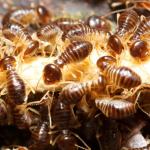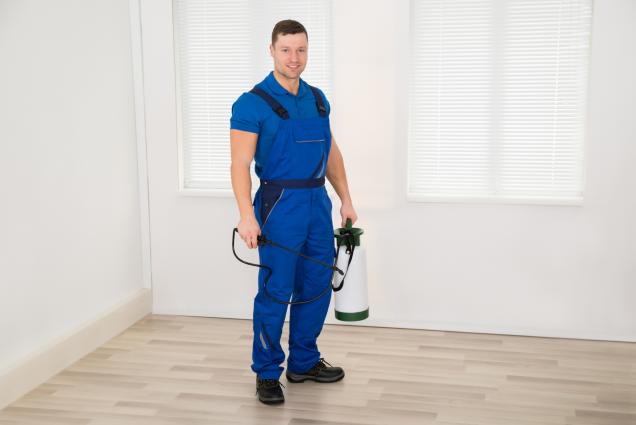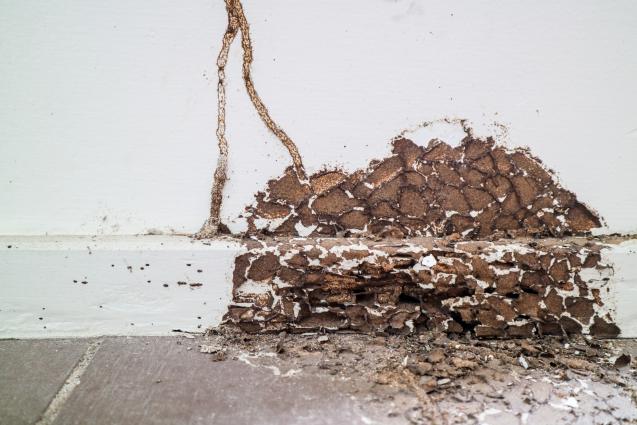
How to reduce risk of termites
By Dependable Pest Control|September 19, 2022
Detecting and Managing Termites
Termites are a real pest! Every year, they cost property owners thousands in repairs. That's why it's important to have regular termite inspections of your home and gardens. Here we've put together a comprehensive guide on termite detection and management.
Termite Detection
Termites don't just eat away at timber. They eat their way through a variety of furniture upholstery, paper products, fabrics, and even plastics, building sealants and hard foam insulation!
Here are a few clues that termites are destroying parts of your home:
If you locate a termite nest, don't disturb it! First, call a qualified pest manager and talk about a treatment plan. It's important to consult a licenced professional, or you could make the infestation worse. For example, by disturbing a colony without a plan of action, you might cause the termites to relocate to a new, more discreet location in the building.
Lessen Your Risk of Termites
A Professional Termite Inspection
Pest inspections are recommended once a year for property owners. It's important to be present during a termite inspection, to make sure that it is thorough. During a termite inspection, the licenced inspector should examine all accessible timber under the house and roof, and the interior and surrounds of the building including gardens and fences. An inspector should note the effectiveness of any current termite barriers on the property. Make sure they examine the most susceptible areas of the property (ventilation, crawlspaces, drainage, damp areas, etc.)
The pest inspection report should include details of all of the inspected areas, current termite activity. If termite activity is found, the report should also outline a comprehensive termite management plan.
The Main Systems of Termite Management
There are a few different ways to manage termites in your structure.
Physical barriers are non-toxic, permanent and don't require maintenance. They provide an impenetrable barrier that stop termites from getting into your home. Physical barriers include:
A licenced expert will recommend a plan of action based on the species of termite, the location of colonies and the overall intensity of your termite problem.
Make Sure Your System is Up to Code
The Building Code of Australia requires that all new homes and extensions have a termite management system in place on the mainland. Be sure to put in physical or chemical barriers around any new construction, in accordance with your local regulations.
Concerned about termites at your property? Call Dependable Pest Control today for safe, effective termite control.
Termites are a real pest! Every year, they cost property owners thousands in repairs. That's why it's important to have regular termite inspections of your home and gardens. Here we've put together a comprehensive guide on termite detection and management.
Termite Detection
Termites don't just eat away at timber. They eat their way through a variety of furniture upholstery, paper products, fabrics, and even plastics, building sealants and hard foam insulation!
Here are a few clues that termites are destroying parts of your home:
- Visible mud shelter tubes–they build these for protection
- Hollow sounding timber when tapped
- Sagging floors or door frames
- Cracked paint or plaster
- Power failures that aren't caused by weather–termites may chew electrical wires!
If you locate a termite nest, don't disturb it! First, call a qualified pest manager and talk about a treatment plan. It's important to consult a licenced professional, or you could make the infestation worse. For example, by disturbing a colony without a plan of action, you might cause the termites to relocate to a new, more discreet location in the building.
Lessen Your Risk of Termites
- Fix any problems with moisture including leaks and poor ventilation
- Clear out any clutter from crawl spaces and ventilation areas
- Remove any wood that's in contact with the ground (such as firewood piles)
- Have a pest inspection annually, and follow the instructions given
- With new construction, put the proper termite management systems in place
A Professional Termite Inspection
Pest inspections are recommended once a year for property owners. It's important to be present during a termite inspection, to make sure that it is thorough. During a termite inspection, the licenced inspector should examine all accessible timber under the house and roof, and the interior and surrounds of the building including gardens and fences. An inspector should note the effectiveness of any current termite barriers on the property. Make sure they examine the most susceptible areas of the property (ventilation, crawlspaces, drainage, damp areas, etc.)
The pest inspection report should include details of all of the inspected areas, current termite activity. If termite activity is found, the report should also outline a comprehensive termite management plan.
The Main Systems of Termite Management
There are a few different ways to manage termites in your structure.
Physical barriers are non-toxic, permanent and don't require maintenance. They provide an impenetrable barrier that stop termites from getting into your home. Physical barriers include:
- Termite shields
- Woven metal mesh
- Composite systems that use chemically-treated plastic
- synthetic pyrethroids such as bifenthrin and permethrin
- non-repellent chemicals such as fipronil and imidacloprid
- reticulation systems: this involves fitting pipes under slabs and around the edges of a building, with access points for insecticide application
A licenced expert will recommend a plan of action based on the species of termite, the location of colonies and the overall intensity of your termite problem.
Make Sure Your System is Up to Code
The Building Code of Australia requires that all new homes and extensions have a termite management system in place on the mainland. Be sure to put in physical or chemical barriers around any new construction, in accordance with your local regulations.
Concerned about termites at your property? Call Dependable Pest Control today for safe, effective termite control.



